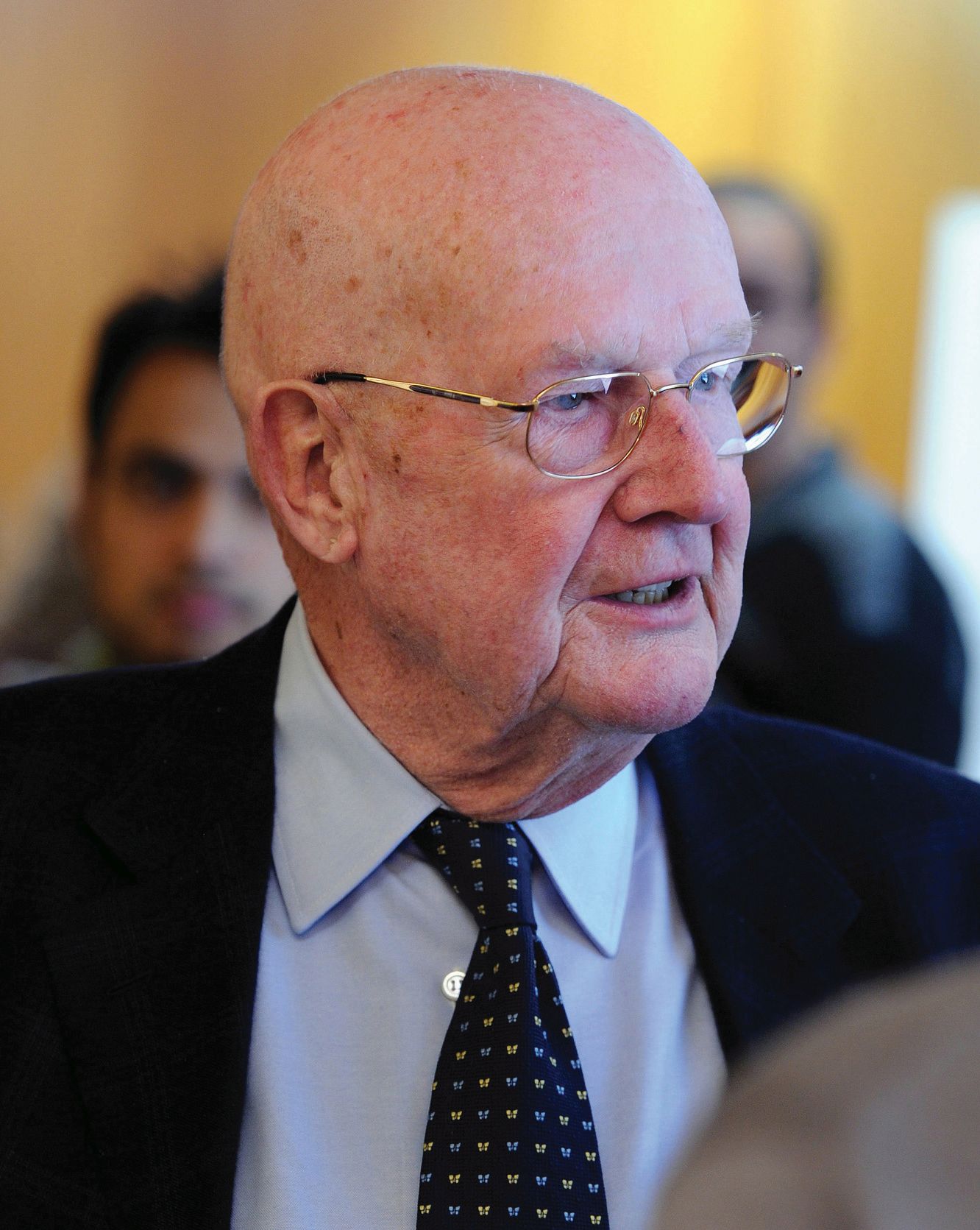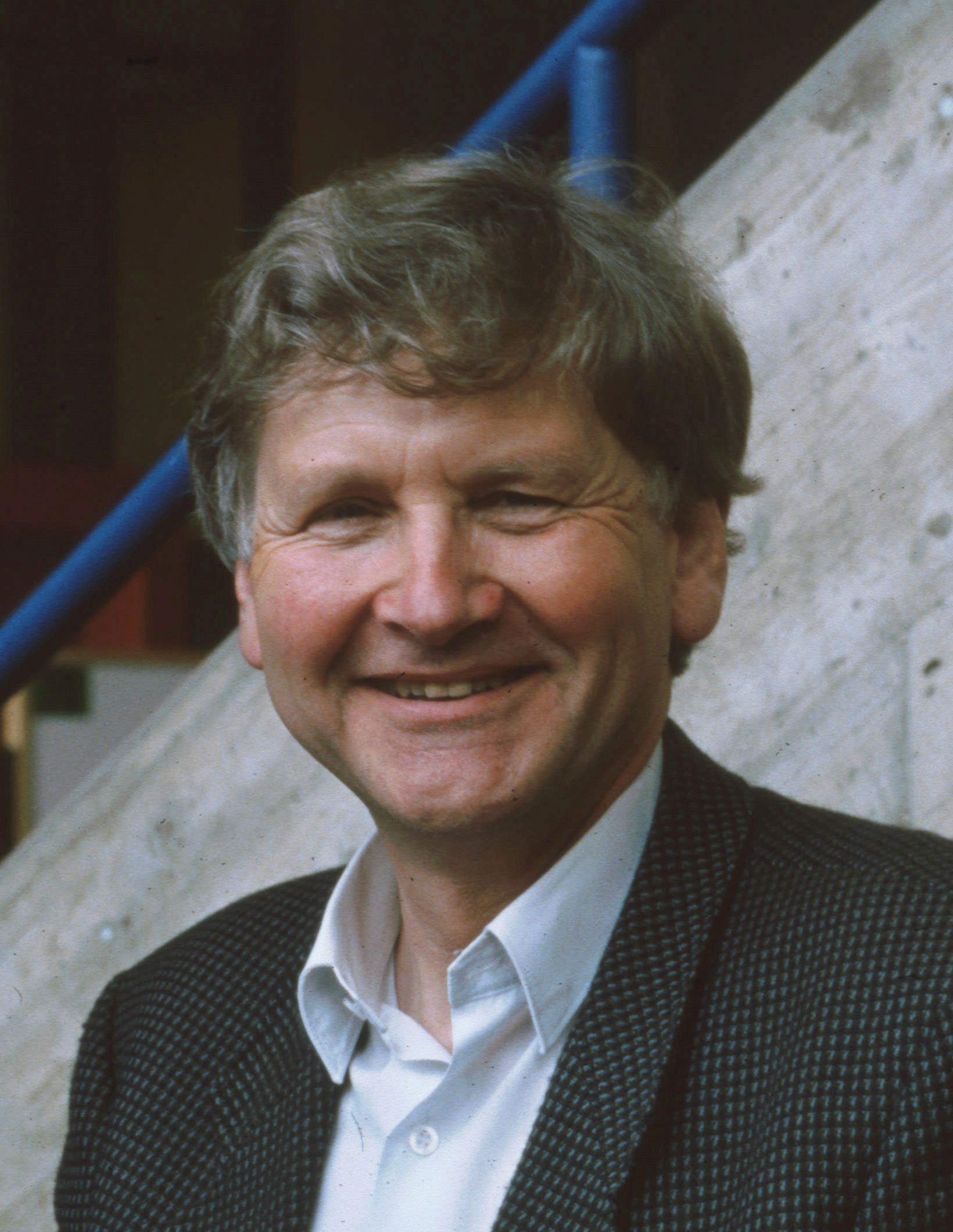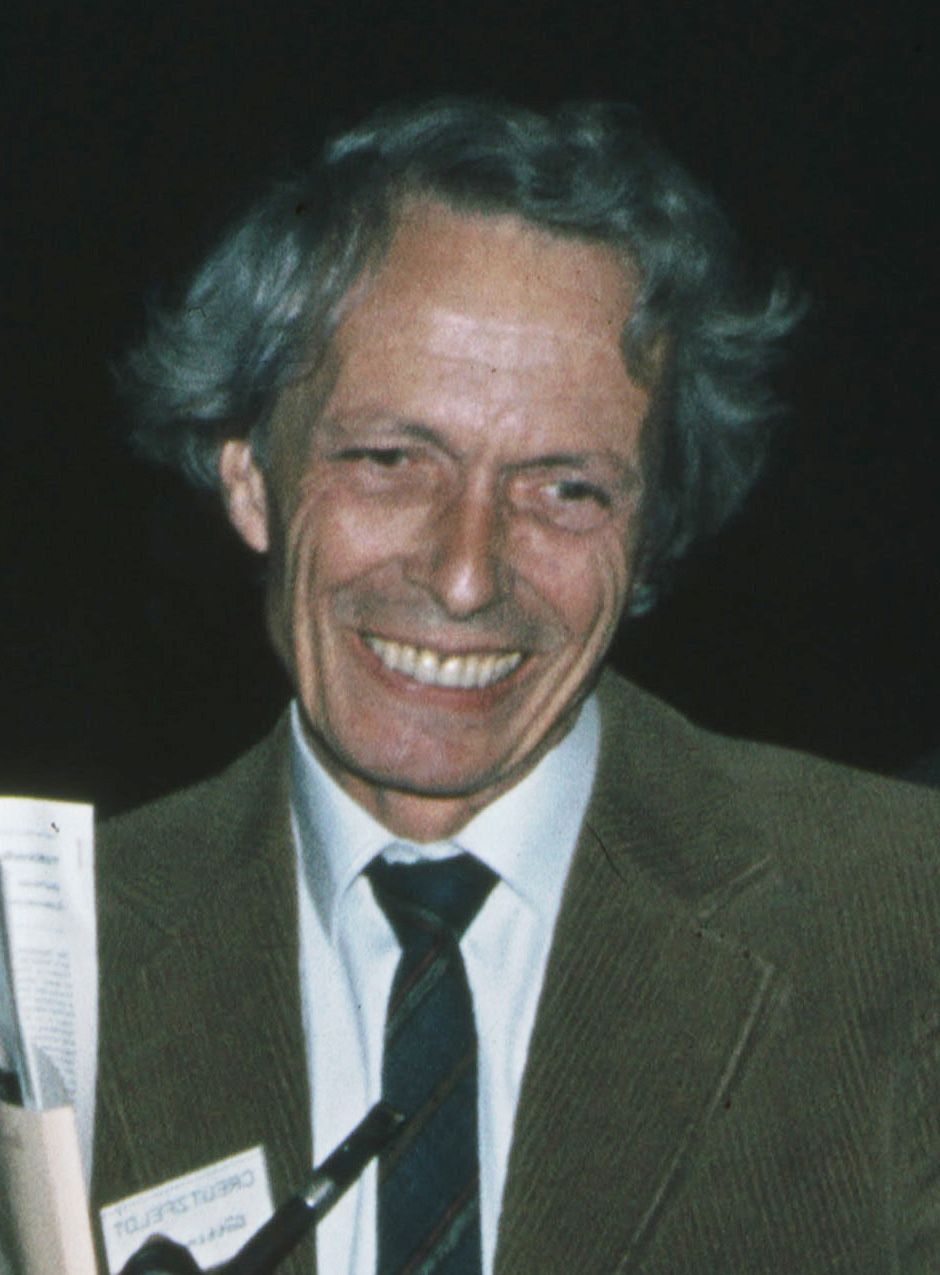Translational Neuroscience Lecture of the
Gertrud Reemtsma Foundation

The Gertrud Reemtsma Foundation was established in 1989 by Gertrud Reemtsma. Gertrud Reemtsma’s intension was to combine basic brain research with potential applications for the benefit of patients suffering from neurological diseases. The main goal of the Gertrud Reemtsma Foundation is to recognizing and rewarding international excellence in translational neuroscience that impacts human health by awarding the »International Prize for Translational Neuroscience« to outstanding neuroscientists and clinicians. The Foundation also supports speakers at neuroscience meetings as well as events for the next generation of neuroscientists and clinicians. The Gertrud Reemtsma Foundation is administered by the Max Planck Society as a trust.
Norbert Elsner Lecture
.jpg)
Norbert Elsner was born in Hermsdorf, Poland in 1940 during the Second World War and grew up in Freudenberg in Southern Westfalia. He studied biology in Münster, Munich and Tübingen where he met the neuroethologist Franz Huber. He followed Franz Huber to Cologne and completed his PhD thesis on “The neuromuscular basis of courtship in the grasshopper gomphocerippus rufus”. After research stays in Kampala (Uganda) with Hugh Rowel, at the University of Copenhagen with Axel Michelsen, and at the University of Oregon with Graham Hoyle he did his habilitation in zoology at the University of Cologne in 1974. In 1978 he was appointed professor of zoology at the University of Göttingen, where he continued his research as the head of the department of neurobiology until his retirement in 2009.
Norbert Elsner’s research focused on the acoustic communication in insects, especially grasshoppers. He investigated the neuronal and sensory basis of acoustic communication using different techniques such as laser vibrometry or electrophysiology.
Besides research, Norbert Elsner had many other interests. He organized the “Göttinger Neurobiologentagung” from 1982 to 2003. Henceforth the Göttingen meetings were under the auspice of the German Neuroscience Society. Between 1999 and 2010 he organized a series of public lectures, linking neuroscience to other scientific disciplines. The subjects of these lectures were published in nicely illustrated books which he edited himself. Norbert Elsner was a true polymath and a connoisseur of literature, music and theater who loved to inspire.
Norbert Elsner (1940-2011)
Armin Schram Lecture

Armin Schram was born in 1929 in Prague, Czech Republic. He studied chemistry at the University of Vienna where he received his doctoral degree in chemistry in 1953. In the same year he joined the Deutsche Erdöl AG (from 1970 onwards “Deutsche Texaco AG”). Since 1968 he was a member of the managing board. During the seventies he was appointed as “General Manager International Refining” and spent two years in the US. Since 1979 he acted as CEO of the company. In 1988 the “Deutsche Texaco AG” was integrated into the RWE trust. Armin Schram became chair of the board of RWE Dea AG, a branch of the RWE responsible for the company’s petrol and chemistry business. He also represented the company in the board of the “Stifterverband für die Deutsche Wissenschaft”, a German Trust Foundation supporting science and research. Here he realized the importance of private commitment for basic research. All his life he had been interested in chemistry and biomedicine, and after his retirement in 1993 he finally found time to pursue his interests consequently. He was especially fascinated by brain research.
In 2000 he founded the Schram-Foundation with his private assets and with the goal to support research in basic neuroscience, especially in modern brain research. The aim of his foundation is to support research, which elucidates the molecular and cellular mechanisms of brain function, including information processing and learning & memory. The foundation capital amounts to 8.1 million Euro and the annual funding budget is about 400.000 Euro. In 2011 Armin Schram was elected as the first (and to date only) honorary member of the NWG.
Besides his interest for research and science Armin Schram was a passionate sailor and hunter and appreciated the company of people who shared his passion. He regularly participated in the NWG Göttingen Meetings and initiated the series of “Schram Symposia” as satellite events to the NWG biennial meetings. Aged 85, Armin Schram died in 2015 just a few weeks before the 4th Schram Symposium.
Armin Schram (1929-2015)
Ernst Florey Lecture

Ernst Florey was born in Salzburg, Austria in 1927. He studied philosophy, botany and zoology in Salzburg and Vienna. In 1950 he completed his PhD in neuropharmacology in Graz. As a postdoc he was awarded a Fulbright scholarship to work with Cornelis A.G. Wiersma at the California Institute of Technology on isolated crayfish stretch receptor neurons. After research stays in Göttingen, Würzburg and Montreal he was appointed professor at the University of Washington in Seattle in 1956. In 1969 he returned to Germany to the newly founded University of Konstanz where he investigated the biochemical properties of synapses and the effects of drugs until he was retired in 1992. From 1971 to 1972 he was president of the German Society of Zoology. In 1973 he founded, together with Otto Creutzfeldt, the Göttingen “Neurobiologentagung”. Since 1982 he organized the Lindau Nobel Laureate Meetings at Lake Constance.
Ernst Florey discovered factor I as an agent causing inhibition, characterized as GABA in 1957. In the beginning there was doubt that GABA is indeed the transmitter substance of inhibitory neurons until it was recognized as the major inhibitory neurotransmitter in the mammalian brain. Ernst Florey was also the co-founder of the concept of neuromodulation.
Besides research, Ernst Florey was interested in philosophy and published books and essays on the history of science.
Ernst Florey (1927-1997)
Otto Creutzfeldt Lecture

Otto Creutzfeldt was born in Berlin, Germany in 1927. He was the youngest son of Hans-Gerhard Creutzfeldt who described the Creutzfeldt-Jakob disease. He first studied humanities but soon switched to medicine and obtained his M.D. in the department of Richard Jung at Freiburg University in 1953. From 1953 and 1959 he was an assistant and trainee in physiology, neurophysiology, and neurology in Freiburg and in psychiatry in Bern, Switzerland. For two years he worked as a research anatomist at UCLA Medical School before he moved to the Max Planck Institute for Psychiatry in Munich in 1962, where he obtained his degree in clinical neurophysiology. In 1971 he became one of the nine directors of the Max Planck Institute for Biophysical Chemistry, as head of the Department of Neurobiology.
Otto Creutzfeldt was one of the pioneers of modern neurophysiology. He investigated the function of the visual cortex applying intracellular recording from cortical neurons and elucidated the neurophysiological principles of the EEG. He also made seminal contributions to the understanding of visual and speech cortices.
In 1973 he founded, together with Ernst Florey, the Göttingen “Neurobiologentagung”. He was the mentor for a large number of neurobiologists: Nobel Prize winner Bert Sakmann, Henning Scheich, Wolf Singer, Heinz Wässle, to name a few, worked in his laboratory as doctoral students.
Otto Creutzfeldt (1927-1992)
Hertie Stiftung

The work of the Hertie Foundation focuses on two key issues: brain research and strengthening democracy.The foundation’s programmes and initiatives provide best-practice examples and inspiration within these areas. In order to act freely and put our founder’s intentions into practice using contemporary methods, the Hertie Foundation generally runs its own projects, but it also provides funding support.
The focus is always on people and on making tangible improvements to their living conditions.
In its field of activity "Studying the brain", the Hertie Foundation focuses on the function of the brain and fighting its illnesses. The focus lies on the promotion of clinical brain research and projects in the field of basic research and the support of young scientists. In addition, the foundation supports neuroscience initiatives for innovative research, education, and communication formats.
Hermann und Lilly Schilling Foundation
The Hermann und Lilly Schilling Foundation for medical research has been established in 1970 by Aloysia Schilling. She was the wife of Hermann Schilling who died in 1961. He was a high ranking financial state councillor and president of the VEBA, a company dealing with electricity and mining.